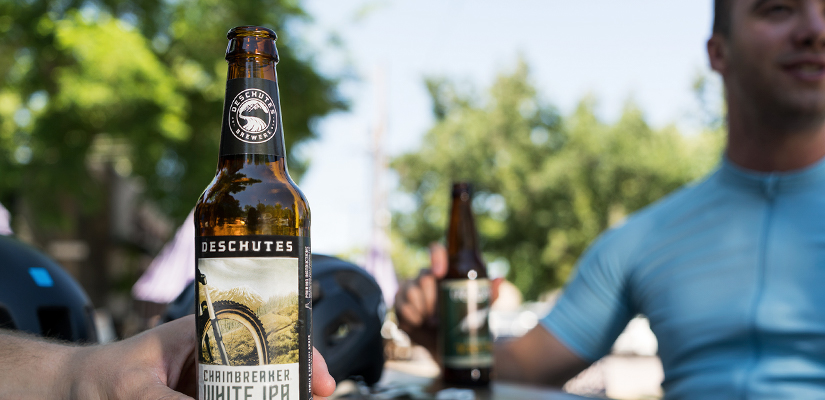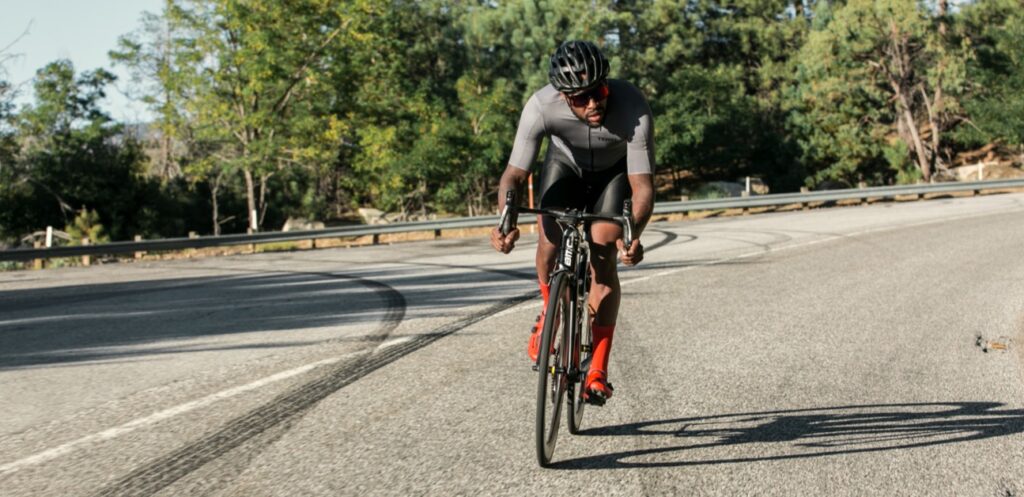Alcohol is intimately related to cycling and racing in general. Post-ride trail brews, podium champagne and “recovery beers” are all a regular part of our cycling vernacular and culture, but if you’re trying to take your training seriously, should they be?
The effects of alcohol on performance can be narrowed down to two things: how it affects your metabolism and how it affects your muscles.
How Alcohol Affects Metabolism
Alcohol is not processed like food. As it leaves the small intestine it heads straight to your bloodstream, leaving your liver to do most of the work.
Since your body recognizes alcohol as poison it takes metabolic priority over everything else you’ve consumed. That means your usual metabolic processes of converting glucose and fat into energy are temporarily slowed while your body focuses on processing the alcohol. This results in low blood sugar and makes the effects of exercise, like fat loss, more difficult to achieve. In fact, alcohol can delay or slow the process for quite some time after consumption.
When you combine the effect alcohol has on fat metabolism with its high sugar content and high caloric density, it’s fair to say it’s not a good choice for performance nutrition. In fact, alcohol has 7 calories per gram compared to the 5 calories per gram of carbohydrate. For comparison’s sake, fat has 9 calories per gram. What this means is that alcohol, in a sense, isn’t too far off from pure fat but the major downside is it lacks all the fueling benefits of fat.
From start to finish, processing ½ oz of alcohol can take as little as one hour, but for some this extends all the way up to three hours. During this time your body inhibits antidiuretic hormone production. This results in a loss of liquid, vitamins and minerals, and hinders the process of nutrient absorption from the food you are taking in at that time.
How Alcohol Affects Your Muscles
The goal of structured training is to make you faster through dosing a specific amount of stress, offset by adequate recovery. However, the popular tradition of post-ride beers or podium champagne throws a wrench in these spokes.
Much of your recovery takes place during sleep when your body releases human growth hormone and replenishes its testosterone levels. When alcohol has been consumed, even hours before sleep, it slows the production of both of these reparative processes athletes need. What this means in terms of training is that the intended benefits of increased training stress will not be absorbed at the same rate.
There’s another disadvantage to consider. If you drink an excessive amount of alcohol you can actually poison muscle fibers and significantly impair the way your body absorbs training adaptations. What once took your body hours to recover from, now takes days.
Should Cyclists Not Drink?
If becoming a faster cyclist is your sole focus, then it’s tough to recommend anything besides total abstinence. That said, don’t eliminate alcohol completely if it’s going to cost enjoying your sport. Not prioritizing fun can almost be just as detrimental as having a beer or two post race. Moderation and timing are the keys when it comes to alcohol consumption.
If you are going to drink, simply remember the less you drink, the better off you’ll be. And, most importantly, remember: alcohol before training or racing will adversely affect your body’s ability to stay fueled; and alcohol after training or racing will adversely affect your body’s ability to repair and recover. Also bear in mind that the detrimental effects of alcohol tend to linger for longer that we’d like to admit, so try to leave as much time between drinking and training as possible.
My advice? If you can, skip the drink, but don’t allow yourself to suck the fun out of your cycling experience. If you can manage to do both, then you’re winning big!
Listen to Certified Cycling Coaches Discuss Nutrition
Alcohol and human performance is just one topic we covered in episode 30 of the Ask a Cycling Coach podcast. Listen to the episode’s full recording below to hear this and other questions from cyclists get answered by our certified cycling coaches.
Additional Notes
TrainerRoad’s Ask a Cycling Coach podcast is dedicated to making you a faster cyclist. It gives you the chance to get answers to your cycling and triathlon training questions from USAC certified coaches Chad Timmerman, Jonathan Lee and special guests. Learn more about other topics we covered in the latest episode with our resources below:
- TrainerRoad is on Snapchat!
- TrainerRoad at Sea Otter
- How to get faster
- How to raise your FTP
- Is speed irrelevant when training inside?
- How to measure improvement for cyclists
- Where to start with a cycling training plan
- How power meters work
- How single leg power meters work
- Is alcohol bad for athletes?
- Is beer a good recovery drink?
- How much alcohol is too much for cyclists?
- How to use TrainerRoad in a gym when travelling
- What is Heart Rate Max (HRM)?
- How to use heart rate data
- Can you increase your max heart rate?
- How to know when to chase down a breakaway
- Race tactics for road and criterium racing
- What is the difference between different types of mountain bikes?
- Which mountain bike to start out with
- Are early morning workouts bad for you?
- How to stay motivated with your training?
If you have a question that you’d like to ask Coach Chad, submit your question here. We’ll do our best to answer them on the next episode of the Ask a Cycling Coach podcast.

